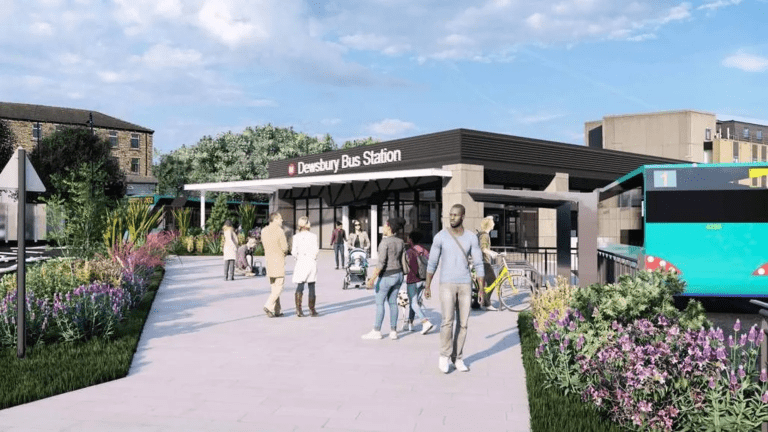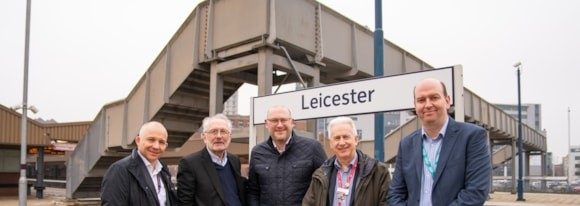New Report From Leading Ecology Firm Challenges Government’s Proposals A new report by leading UK ecology consultancy, Arbtech, reveals that the Government’s plans, announced in Tuesday’s Planning and Infrastructure Bill, for a new tax on development that includes a single payment into a Nature Restoration Fund could put UK cities at risk of losing green space and nature. The levy could result in catastrophic consequences for urban and low income communities across the country, including a real impact on the mental and physical health of those living in disadvantaged areas, intensifying inequalities further. Arbtech’s report – ‘Growthwashing: Why a Nature Restoration Fund could be the worst thing to happen in ESG….Ever’ – has been produced in response to the Planning Reform Working Paper ‘Development and Nature Recovery’ which sparked intense debate among environmental advocates and the many housing delivery stakeholders. Central to the Government’s proposal, which was confirmed in the Planning and Infrastructure Bill, is for developers to make a single payment into a nature restoration fund in lieu of all surveys and mitigation for biodiversity on a development site. This streamlined approach is presented as a practical solution for balancing development needs with environmental conservation, but according to Arbtech, it introduces a series of harmful consequences. Robert Oates, CEO of Arbtech, explains; “When developments replace local green spaces, they remove the possibility for low-income communities already under-served by access to nature to enjoy its immediate and tangible benefits. A single, one-time payment into an abstract mechanism to streamline the planning process does not compensate for the immediate and very real biodiversity loss. Nor does it guarantee that conservation or restoration projects will unfold in or near the communities impacted by the development activity. “Over a decade or two, this “growthwashing” approach could lead to the creation of a few large nature reserves somewhere else in the authority, county or even country, and yet that does nothing to protect or reinstate local ecosystems in the very areas where the biodiversity was lost. Consequently, generations of children will grow up in areas with progressively less exposure to nature, devoid of the small patches of woodland, wetlands, or community gardens that would otherwise foster a connection to the environment and that has been evidenced in a very robust way as helping them develop healthier and happier lives.” The report states that affluent, rural or suburban areas often have established legal or policy protections, such as green belt, that shield them from the most aggressive development pressures. In contrast, urban areas and lower income neighbourhoods are not as well safeguarded by similar regulations. Arbtech’s report references several studies which highlight the repercussions on the mental and physical health of those living in disadvantaged communities that have less contact with nature including the Office for National Statistics report titled ‘A million fewer people are gaining health benefits from nature since 2020’, which underscores how critical and yet fragile the relationship between human health and nature has become. The NHS Forest’s ‘Green Space for Health 2021-22 Evaluation Report’ also highlights how even modest amounts of green surroundings can promote physical activity and foster mental relaxation. Research from ‘The Economics of Biodiversity: The Dasgupta Review’ has also been drawn upon to demonstrate that biodiversity loss and environmental degradation can have profound impacts on human wellbeing, asserting that these impacts are not linear. Lower-income families already face higher rates of poor health, reduced access to quality healthcare, and greater exposure to pollution. If their communities lose more natural spaces, these existing and very real inequalities will intensify. Oates continues; “The working paper’s proposals will impact biodiversity and communities in ways that completely ignore well-established findings across an enormous variety of research domains, including healthcare, sustainability, and economics. Time and time again, all of these disciplines consistently emphasise the same message: proximity to and quality of green space are critical factors in delivering a continuous stream of benefits in health, social equity,biodiversity, and a resilient and stable economy. “A payment scheme that fails to preserve local biodiversity and instead places faith in distant restoration effort risks undermining the ESG-literacy of young people. If families cannot afford in both money and time to travel far beyond their local area, regularly, the absence of local nature experiences leads to a diminished sense of ownership and responsibility for the environment.” Another critical issue covered in Arbtech’s report is the allocation of capital captured by the nature restoration fund, into which developers would make their payments. Concerns are raised on the governance, transparency, and accountability of the way the fund is invested and spent if it does not have appropriate oversight (e.g. from the Office for Environmental Protection) and transparent procurement processes that allow small businesses to benefit. Oates concludes;“The new tax on development that comprises a single payment into a nature restoration fund, as outlined in the Planning and Infrastructure Bill, is deeply flawed. Transforming nature recovery into a transactional, box-ticking exercise with zero accountability for local displacement of habitats and biodiversity means both nature and our communities become collateral damage in the relentless pursuit of “growth”. “If these policies are enacted through the Planning and Infrastructure Bill, then it’s a huge gamble on the outcome of an enormously complex system.” Building, Design & Construction Magazine | The Choice of Industry Professionals












